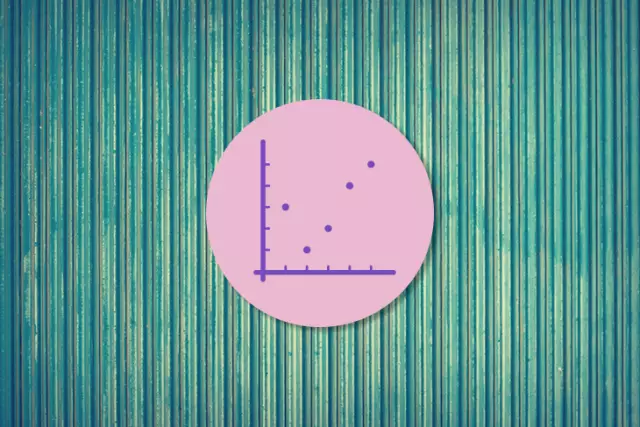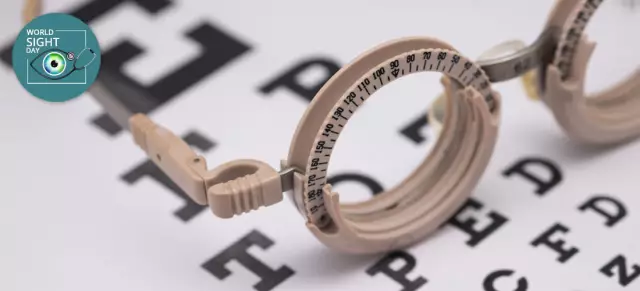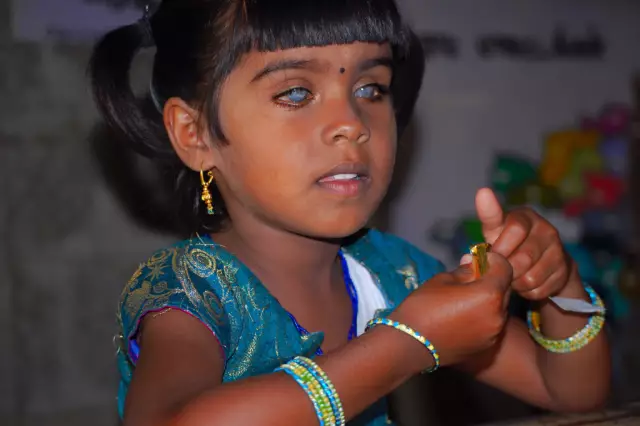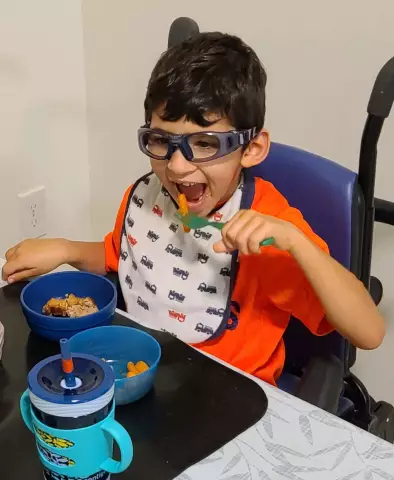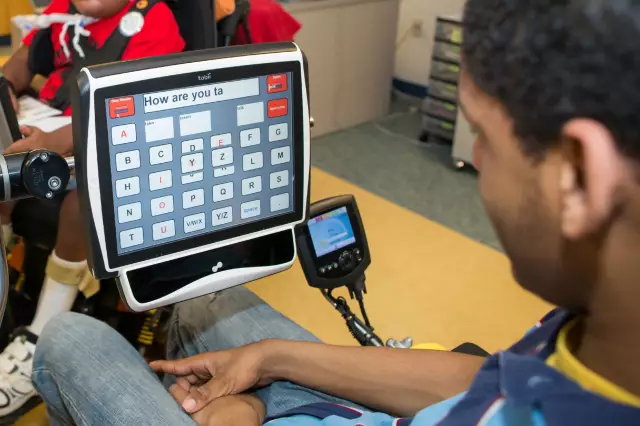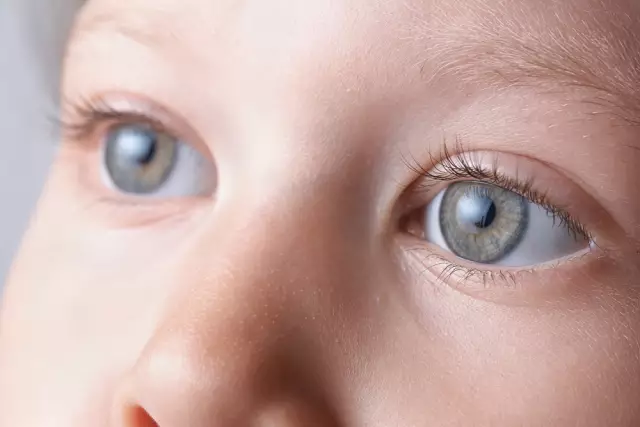- Author Rachel Wainwright wainwright@abchealthonline.com.
- Public 2023-12-15 07:39.
- Last modified 2025-11-02 20:14.
Perceptual impairment in children
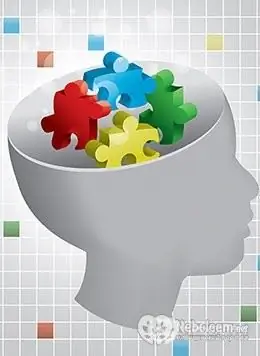
Perception is a complex process of general display of all properties of phenomena and objects. It covers in the aggregate all judgments, actions, memory, emotional reflection, own feelings. Sensation reflects in our consciousness the individual properties and qualities of the object. The perception process analyzes and synthesizes the past experience of accumulated sensations and displays them in consciousness.
Perceptual impairment in children, associated with a lack of stimuli and information, cannot correctly orient the child in the environment. Perception is a reflection of complex irritation.
Determining the objects around us, we are based on the image obtained as a result of previous experience. When we receive an incomplete experience due to some physical defect, we perceive an image that does not correspond to its real qualities.
Features of perception in children with visual impairment
Having full vision, a person, when defining an image, is based on its objectivity, integrity, meaningfulness, and significance. At the same time, the integrity of an object or phenomenon consists of various nuances, united by one whole.
Perceptual deficiencies in children with visual impairments leave a negative imprint on their intellectual and mental development.
From infancy, a child with impaired vision perceives the world and objects in a distorted form. He cannot clearly define the edges of the object, the color scheme is devoid of shades, the spatial sensation of the object is difficult.
Against the background of impaired perception, children develop fears, well-thought-out, illusory objects that cause confusion and poor orientation in the world around them.
As a result of visual defects, children may develop optical (visual) agnosia - a violation of the recognition of visual images.
Children with visual impairment have a reduced cognitive horizon. At all stages of development, mental underdevelopment is observed, and sometimes the development of mental illness. Sometimes perception in children with visual impairments entails a violation or underdevelopment of speech, hearing loss.
The educational process of such children passes with difficulty and lag behind their peers.
Space and time are difficult to comprehend for children with limited vision. Sometimes they confuse the right and left sides, for a long time they cannot remember the seasons, hours, months. All this is the result of a violation of children's perception of the environment.
In addition, children with visual impairments have a narrow perception. They are poorly oriented on the terrain, they notice less details.
Perceptual impairment in children is often the cause of poor performance in school. it is difficult for them to determine priorities, isolate the main thing, grasp the essence.
Their school problems begin from the first days, when they need to learn to write and read. As a result of distorted vision, the child cannot correctly portray the letters.
All this gives rise to mental disorders of the child.
Perception in children with CRD
Delayed mental development of children - PDD - can be caused by both organic factors and psychological. One of them is a violation of children's perception of the world around them.
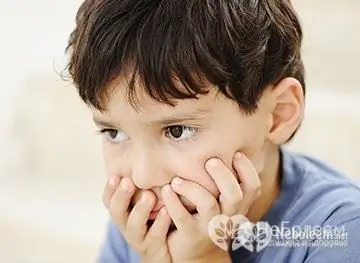
Often, children's incorrect perception of the surrounding reality leads to mental problems.
It is sometimes said that the pictures drawn by children with mental retardation characterize their morbid state, i.e. sick psyche. But, in fact, children with impaired perception of the world paint the world as they see it.
Consequently, the perception of the world, which is the result of a violation of visual or auditory images, entails a violation in the development of the child. Distorted perception in children with CRD is an expression of their feelings of surrounding objects and phenomena.
Children with visual impairments sometimes develop scattered, fragmented visual perception, while knowledge of the world is also fragmented. As a result, the wrong perception of the environment occurs and leads to a delay in development.
In the process of child development, it is necessary to use memory and thinking, but in a situation where these concepts are distorted, there is a violation of perception and a decrease in the level of development.
Perception in children with CRD, compared to their peers, has much fewer facets of perceived sensations.
A small amount of perceived material, a slight difference in object configurations, difficulties in perceiving plots, phenomena, slowness of perception, difficulties with orientation - all this affects the development of the child.
Perceptual impairment in children should be of particular concern to adults. Without their help, it is difficult for a child to enter a complex adult world.
Found a mistake in the text? Select it and press Ctrl + Enter.

